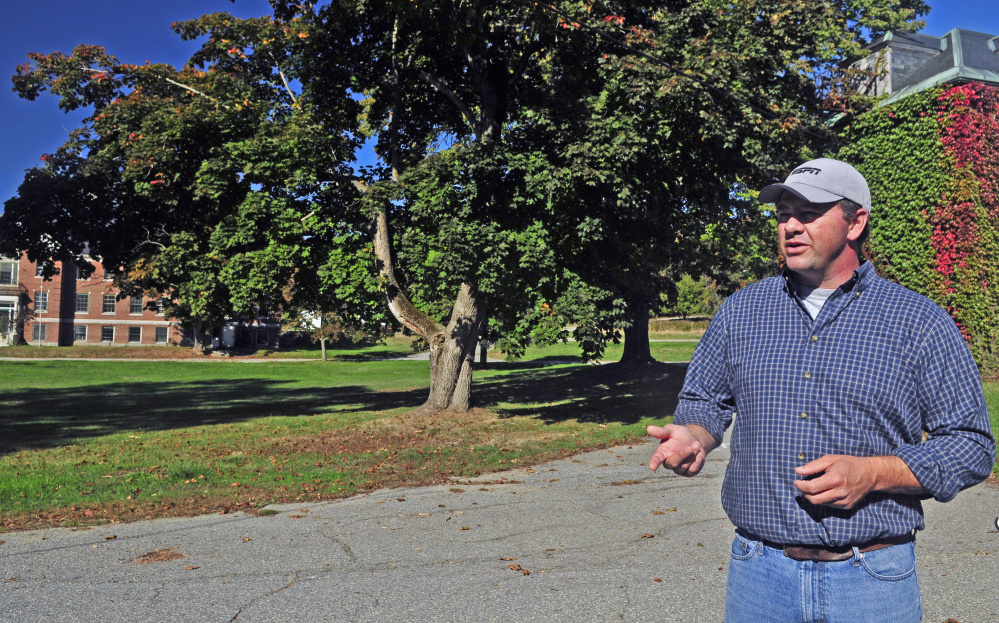The Hallowell Planning Board will seek advice Wednesday from an outside specialist in historic property redevelopment as it works to plan the future of the biggest project in the city’s history.
Because of the size of the Stevens Commons campus and the scope of any proposed redevelopment, a city ordinance gives the Planning Board the authority to bring in an outside specialist for consultation. The board is hosting a discussion about the best practices and the recent history of historic building redevelopment statewide during its meeting Wednesday night at City Hall.
City Manager Nate Rudy said he hopes it’s a “focused discussion about what’s going on around Maine regarding the redevelopment of historic properties” and what other communities “are doing about their white elephant properties.” He wants the board and city to know what has worked and what hasn’t and whether any lessons that can be learned from some of those other communities.
“It’ll give everyone some context for what it has taken in other communities that make these sort of developments come together,” Rudy said. “It should help everyone see the broad scope of how these development arrangements work.”
Owner and developer Matt Morrill acquired the property from the state in April for $215,000, and the project’s master plan was deemed complete by the Planning Board last month.
Rudy enlisted Gardiner-based GrowSmart Maine, a nonprofit organization that works with communities to develop and share new ideas for more livable communities, to lead the discussion. Nancy Smith, the organization’s executive director, said she hopes to bring an overview of reuse developments within this kind of setting.
“There’s real value to the community on a couple of levels,” Smith said. “You need to find the highest and best use of the property as well as the best collaborative impact for the rest of the community.”
Smith said it’s “incredibly exciting” to have a developer put his own money down to take a chance on a project, because there are other developments around the state where that doesn’t happen.
“The developers need to work with the city to make it happen,” Smith said. “There are historic buildings that are important to the city, but there’s an opportunity to redevelop the buildings and bring them back to life.”
Morrill hopes the city will approve a bond issue to help fund some initial infrastructure improvements, but any bond issue could raise the property taxes of Hallowell residents.
Smith said when taxpayer dollars are used, the project often returns that money to the city coffers with increased tax revenue.
“Redevelopment can have value to the town itself, and it is appropriate for the community to wrestle with how to take advantage of this opportunity in a way that also supports the rest of the folks in town,” Smith said.
Morrill’s master plan for the campus, which originally was a boarding school for girls in the late 1800s, calls for a mixed-use development featuring affordable senior housing, commercial and residential space and small, clustered subdivisions.
The next step in the redevelopment process is a public workshop scheduled for Nov. 30. After that workshop, the Planning Board would review any changes made to the master plan before sending the application to a joint review by the board and the City Council.
Rudy wasn’t sure if the council would be taking up the application during its December meeting. Ultimately, after a recommendation by the Planning Board, the council would vote to approve, approve with conditions or deny the master plan.
Jason Pafundi — 621-5663
Twitter: @jasonpafundiKJ
Send questions/comments to the editors.




Comments are no longer available on this story